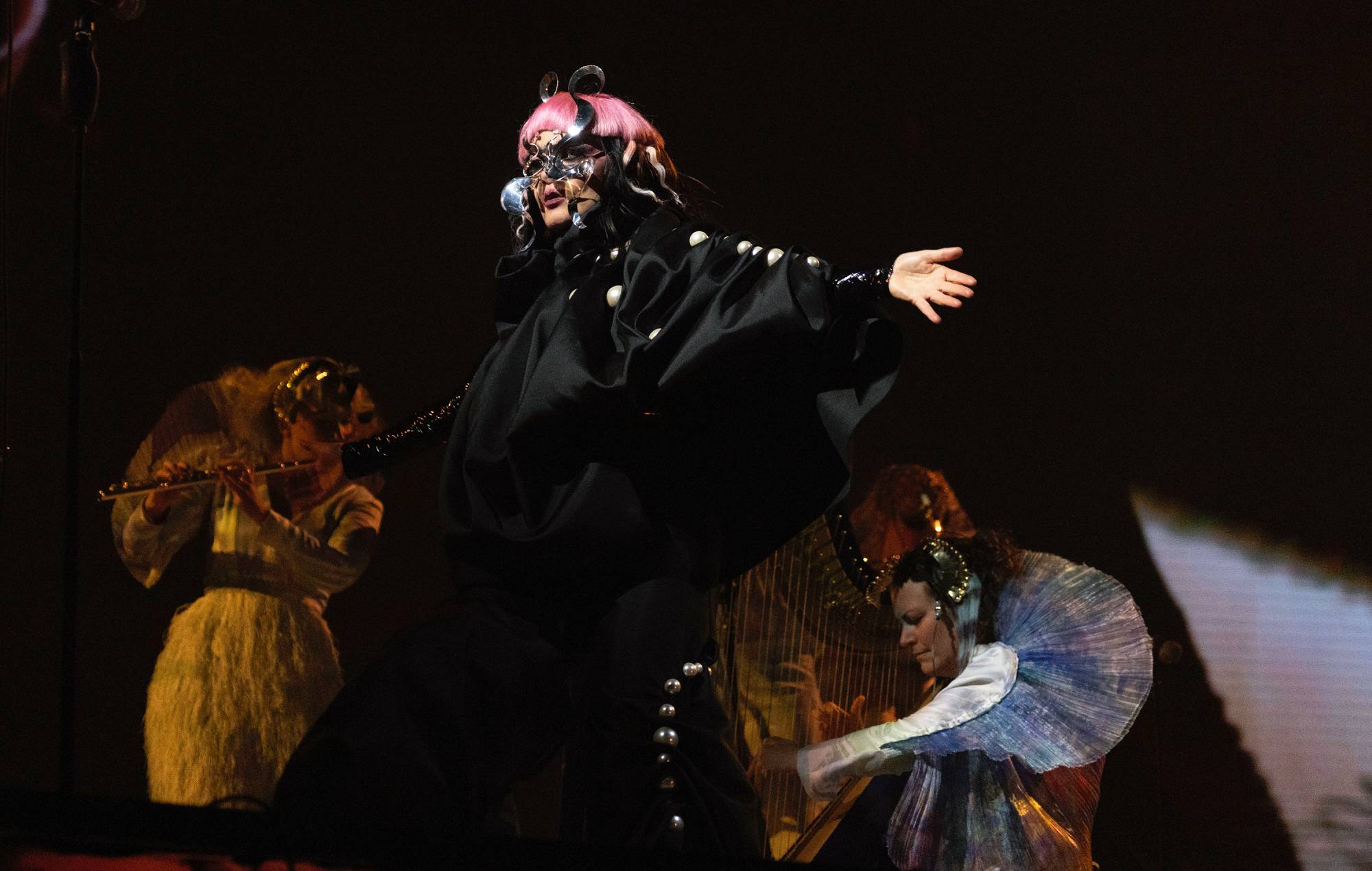
Björk has announced a new sound exhibition which is set to “recreate” the calls of extinct animals.
The exhibit is set to take place at Paris’ Centre Pompidou from November 20 until December 9. Titled ‘Natural Manifesto’, it will be comprised of a 3-minute 40-second piece of audio that uses AI software to recreate the sound of extinct animals and merge them with spoken word vocals.
The piece was created in collaboration with the French artist Aleph and has been supported by the sound research institute IRCAM and curated by the likes of Chloé Siganos, Delphine Le Gatt and environmentalists from France and Iceland.
Speaking about the use of the extinct animal calls, a post on Björk’s Instagram account read: “We wanted to share their presence in an architecture representing the industrial age, far away from nature. In the veins of the escalator of the museum, known as the “caterpillar,” we wanted to remind citizens of the raw vitality of endangered creatures.
“Even though you are restlessly traveling between floors whilst listening to this soundpiece, the tone of animals’ voices hopefully builds a sonic bridge towards the listeners. And in the spirit of these animals, in the magic of how they are sensually aligned with their environment, they become our teachers! Their ghosts remind us of improving our primordial mindfulness.”
The musician also shared that she and Aleph have also set up a campaign which will launch at a later date.
Recommended
Björk also shared a teaser clip of the piece that sees her recite: “It is an emergency. The apocalypse has already happened and how we will act now is essential in pioneering sound-strata with mutant peacocks, bees, and lemurs biology will reassemble in new ways and micro-organisms will mate with other life-forms to heal and adapt in fruiting bodies and fields of sensory information the web of life will unfold into a world of new solutions.”
Björk has been vocal about her environmental activism in the past. Last year she released a song called ‘Oral’ with Rosalia to help fight open-pen salmon farming in her native Iceland.
Having written the song between the late ’90s and early 2000s, the single stayed unpublished until she dug it up from her archives and decided to “give it to activism”.
In an interview with NME her 2022 cover, the singer spoke about the influence of nature in the sound of her album ‘Fossora’. “There’s a lot of pleasure in the album… it’s about enjoying that space. That’s why it ended up getting this kind of ‘fungus’ theme,” she said.
“And when I say ‘fungus’, I mean more like a sound. Six bass clarinets and really fat, deep notes. It is designed for the bottom-end. You need to almost be inside all that bass. It fills the whole room. That’s the grounding of being able to stay in your house.”
She added: “‘Medulla’ and ‘Fossora’ are living in the world you’ve made. The lyrics are more about living this life day-to-day and loving it.”
Reviewing the singer’s ‘Cornucopia’ show in London in 2019, NME described it as “an audacious, expectation-disrupting spectacular from an artist unbothered with people-pleasing”.
The concert also featured a specially recorded message from climate activist Greta Thunberg.


 84
84